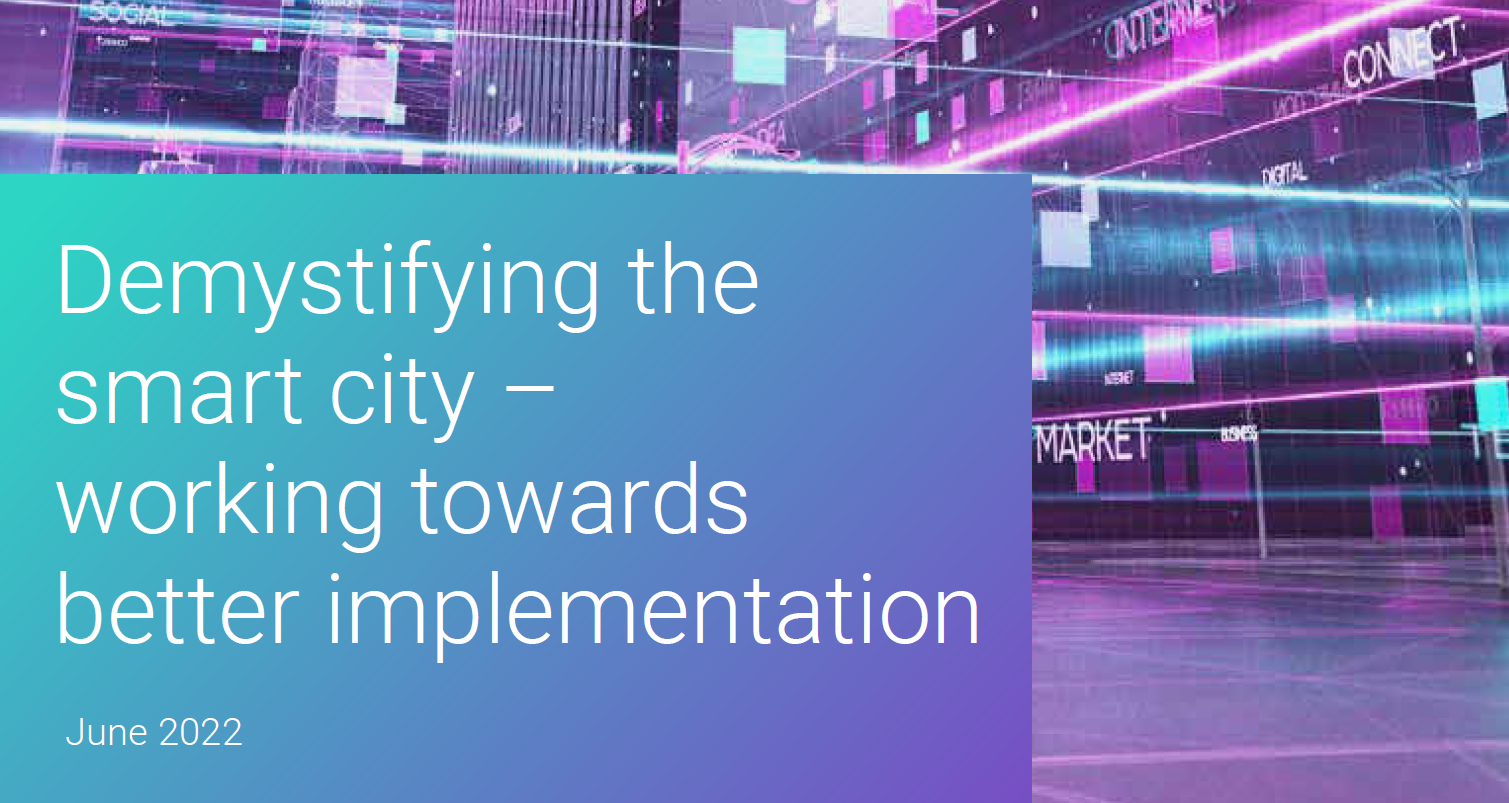techUK, in collaboration with its Smart City Working Group, has published a new report which outlines how cities and technology businesses are rethinking the approach to planning and delivering smart cities to overcome complexity and drive step changes in public service and infrastructure provision.
Aimed towards cities developing smart city capabilities, the report – “Demystifying the Smart City – working towards better implementation” looks at fundamental steps councils must go through in the smart city value chain.
Divided into three core chapters – Prepare, Access and Engage, and Deliver – it provides guidance for cities and includes examples for how cities and technology partners are developing action-orientated ‘visions’, engaging stakeholders and ecosystems and working through implementation challenges.
It comes at a time when cities are dealing with systemic challenges including a rapidly transforming economy, a need to reach net zero by 2050 and wider pressures including an aging society and urban decline.
The report lists five recommendations to improve smart city implementation:
- All cities, regardless of their size or location, should be exploring the opportunity to build smart city capabilities.
As a nation, we face significant challenges which can’t be left to a few leading cities to attempt to overcome alone. All cities, regardless of their size or location, should be looking to develop their smart city capabilities if we are to drive change at the scale and pace currently needed.
- Digital must permeate every aspect of local public services
Digital visions or strategies cannot be standalone documents developed in siloes but deeply interwoven with all elements of local plan making and service provision.
- Local innovation ecosystems should engage all participants in the smart city
Everyone is touched by smart city innovation. Local innovation ecosystems are therefore not just about councils engaging externally but fostering dynamic relationships across the resident, business, academic and third-sector landscape which is part of a continuous feedback loop within and beyond the city limits.
- Establish a regional Chief Digital Officer forum
To help improve collaboration locally, between industry and public services, there should be Chief Digital Officer forums in the UK’s nations and regions.
- Technology businesses and councils must work together to forge new approaches
Delivery obstacles risk a missed opportunity for technology to deliver step changes in cities. To overcome them, technology businesses and local authorities must rethink traditional approaches and paradigms, requiring departure from the ‘customer’ and ‘vendor’ relationship towards genuine and lasting partnership working.


